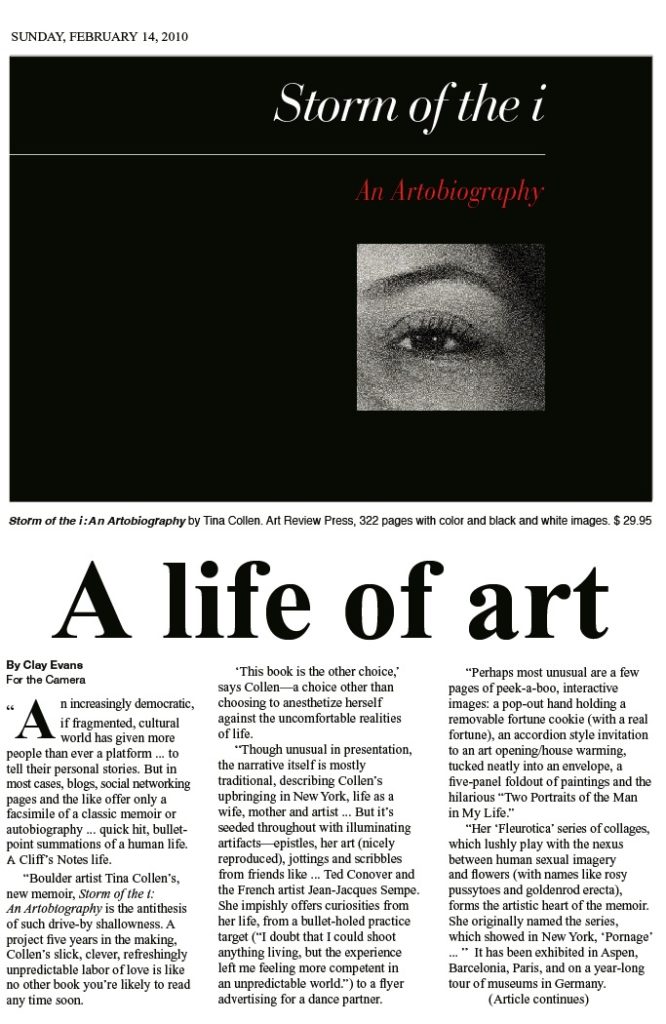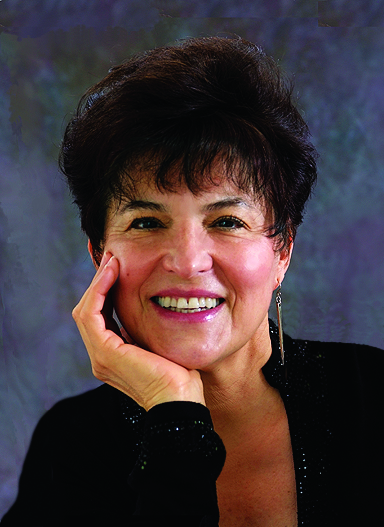Storm of the i : An Artobiography
Excerpts
Create the future you desire, they say
I had never attended a workshop like this before, but with the weight of The Silk Garden hanging over me and the aftermath of my niece’s wedding still present, I was hoping that the professional transformation world might have some wisdom to offer. A close friend had told me about the dramatic changes she experienced in her life after she’d done this same seminar. The program is taught throughout the year in many countries around the world. So here I am, from early morning until after midnight, for the next three days.
At the front of the large windowless room is a platform with a podium. There is a free-standing microphone on each side of the stage. At the back of the room is a third microphone. As everyone gets quiet, I glance at my watch—it’s one minute to eight. A minute later the seminar leader walks in, goes up to the podium and gives everyone a warm greeting. He introduces himself and describes how he came to be involved in the program, how it changed his life, how he gave up a six-figure career in advertising and marketing to become a leader. He talks about his marriage, his kids, his childhood and shares surprisingly intimate details about his personal struggles and defenses. He’s smart, he’s funny, he’s aware—he’s impressive. I like this guy.
He lays out the basic rules for the weekend. Among them are to show respect for each other and to maintain a high standard of integrity. “Raise your hand when you want to speak. I’ll get to everyone,” he tells us. “Be on time. Being late is not just a distraction, it is disrespectful and is a breach of your integrity. It is a violation of our agreement.”
He goes on to explain the fundamental principles of the course—essentially that unresolved issues from our past continue to govern the decisions we make every day right up until the moment that we address those issues directly. The seminar is about pushing past barriers that have kept us “stuck” in unsuccessful patterns. “You can do it this weekend, or in twenty years, when it gets bad enough … or never,” he says. “It’s up to you. Do you want to take control of your life? Do you want to be truly free to create the future you desire?”
He talks about the notion that while we think we are open-minded when we listen, in fact, everything is filtered through our upbringing, our values, our past experiences and we impose those things on what we are hearing. He asks for examples from the audience to demonstrate this. There are plenty of laughs as people get caught seeing themselves. He explains how the family role we adopt in childhood is often still playing itself out in situations that are no longer appropriate. We break up into small groups and do some exercises that are surprisingly revealing. The leader moves on and talks about “our story” and how we merge what actually happened in our past with the story we find ourselves repeating over and over about it. Hours go by and somehow we are all still captivated by our charismatic leader as he deconstructs behaviors we all recognize. We take a twenty-minute break and have a chance to go out for some air.
Back in the room, the leader continues. A middle-aged man in the front row raises his hand and says something. “That’s a good question,” the leader replies. “Why don’t you come up to the microphone so everyone can hear it.” The man asks something that had also occurred to me. He is clear and articulate. I’m glad he has spoken up.
“Earlier you said ‘Not everything that happens is about you,’ meaning that we take things too personally. Now, you just said that everything is about you, everything in your reality is something that you created and you need to take responsibility for it. Which is it?”
“The way you put that question,” the leader says, subtly changing the subject, “one of us is going to be wrong. Do you often find yourself in that situation? What do you do for a living?” The man tells us that he’s in the bio-tech business and that he is the president of his own mid-sized company. The leader engages him in a conversation about his career and about his upbringing.
“Can you remember your earliest memory of feeling wrong?”
I’m surprised at how quickly the man answers. “Yes. I was five and watching my dad work on his car, which is usually how my father spent his weekends. I loved to hang around with my dad. I was excited when he asked for my help to get him the wrench. When I handed it to him, he got annoyed with me and said, ‘Jesus, what’s wrong with you? I said wrench, not screwdriver!’”




